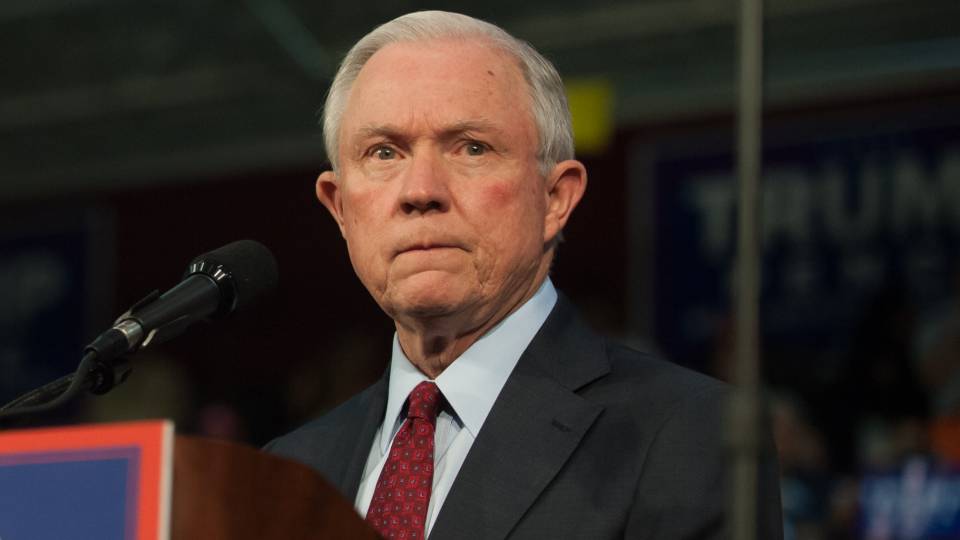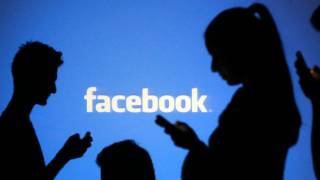Fake News: Media, Democrats Distort Remarks to Target Jeff Sessions
Democrats and the media are once again targeting Attorney General Jeff Sessions — this time, over allegations that he met twice with the Russian ambassador during the 2016 presidential campaign.
The Washington Post reports that Sessions met Sergey Kislyak once at a Heritage Foundation event in July 2016, where other ambassadors were also present. It also reports that Sessions met with Kislyak in his Senate office in September, in his capacity on the Senate Armed Services Committee.
The hook on which the Post attempts to hang Sessions is that he did not disclose the meetings to the Senate when he was asked about “possible contacts between members of President Trump’s campaign and representatives of Moscow.” Sessions’s spokesperson at the Department of Justice, Sarah Isgur Flores, says his answer in January was truthful because he was asked about “the Trump campaign — not about meetings he took as a senator and a member of the Armed Services Committee.”
The Post does not provide the full transcript of the question, from Sen. Al Franken (D-MN), and Sessions’s answer. Instead it summarizes the exchange in a way that makes it seem that Sessions was asked if there was any contact at all between the campaign and representatives of the Russian government.
In fact, what Sessions was asked about was sustained, ongoing communications — a core accusation in the dubious “dossier.”
Here, via C-SPAN, is the transcript:
Franken: CNN just published a story alleging that the intelligence community provided documents to the president-elect last week, that included information that “Russian operatives claim to have compromising personal and financial information about Mr. Trump.” These documents also allegedly say “there was a continuing exchange of information during the campaign between Trump surrogates and intermediaries for the Russian government.” Again, I’m telling you this as it’s coming out, so you know. But if it’s true, it’s obviously extremely serious, and if there is any evidence that anyone affiliated with the Trump campaign communicated with the Russian government in the course of this campaign, what will you do?
Sessions: Senator Franken, I’m not aware of any of those activities. I have been called a surrogate at a time or two in that campaign and I did not have communications with the Russians, and I’m unable to comment on it.
Franken: Very well.
Note that Sessions was not actually asked whether he or anyone affiliated with the campaign had any kind of communication with the Russians, ever. He was asked, first, about “a continuing exchange of information” — repeated contacts between the campaign and representatives of the Russian government.
In the full context of Franken’s remarks, it is clear that Sessions was asked about the allegations in the dossier, and he denied such “communications” to the extent of his ability to do so.
In another, written question, the Post notes that Sessions was asked by Sen. Patrick Leahy (D-VT) whether he had “been in contact with anyone connected to any part of the Russian government about the 2016 election, either before or after election day” (emphasis added). Sessions answered, simply, “no.” And there is no evidence in the Post nor elsewhere to cast doubt on that claim.
The New York Times covers the story and adds an interesting wrinkle — namely, that Obama administration officials did whatever they could to distribute information within the government about alleged contacts between the Trump campaign and Russian intermediaries. (The Times calls this an attempt to “preserve” evidence, which would have been a departure from the Obama administration’s more typical practice of hiding evidence on personal email accounts and hidden email servers.)
That suggests a coordinated hit job, including espionage against the Russian ambassador, and possibly against members of the Trump campaign, even in their unrelated activities.
Regardless, as Flores noted to the Post, Sessions had meetings with “more than 25” ambassadors. The Post lists several of those, but leaves out one crucial country: Ukraine, whose emissary Sessions met the day before meeting with Kislyak. If Sessions was trying to back the Russians, that was an odd way to do it.
House Minority Leader Nancy Pelosi (D-CA) is calling on Sessions to resign, and the Democratic National Committee is already out with a list-building email, sent Wednesday evening: “BREAKING: Jeff Sessions may have perjured himself.”
But it is all just more “fake news.” A chance greeting at a public event, and a Senate meeting in the course of his official duties, do not add up to anything, and the full transcript — also omitted by the Times — makes it clear Sessions told the truth.






















